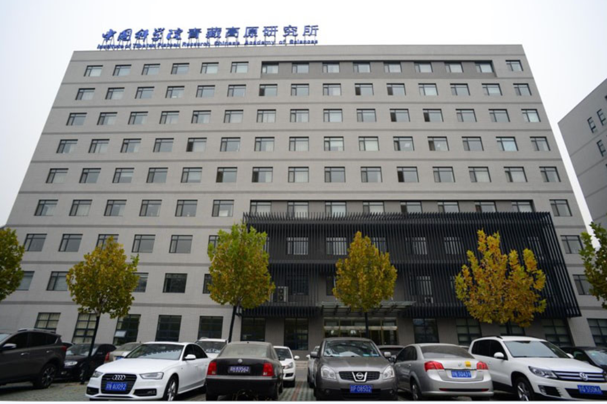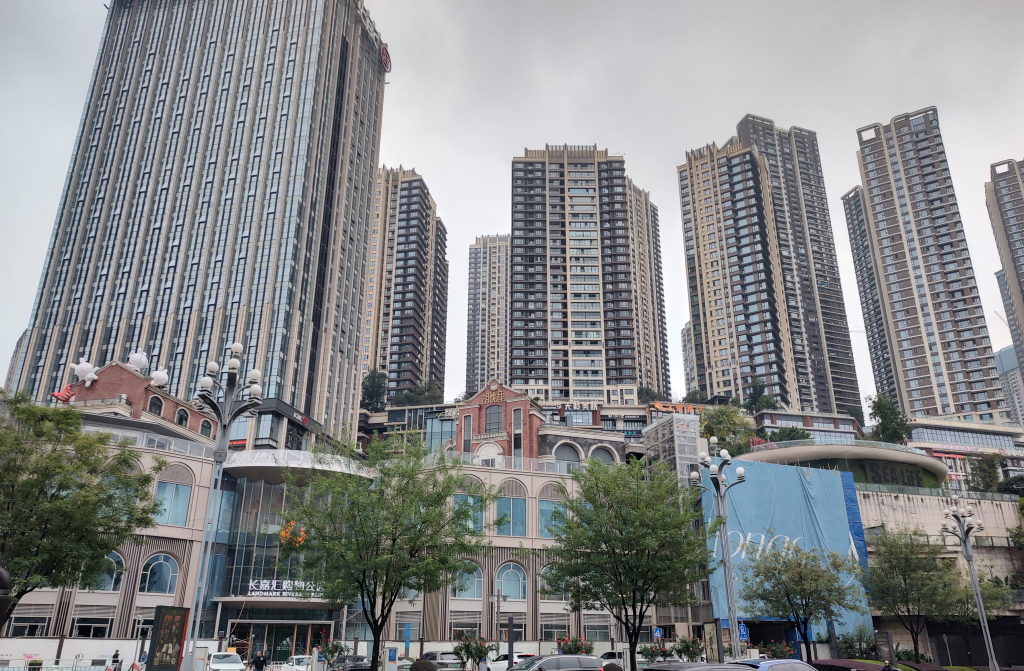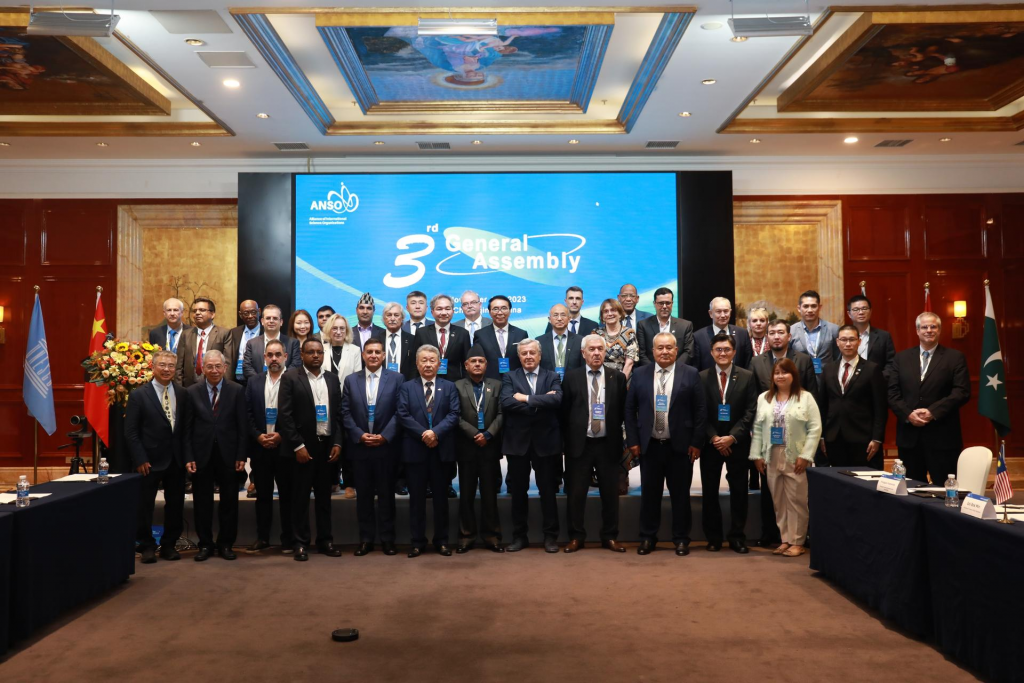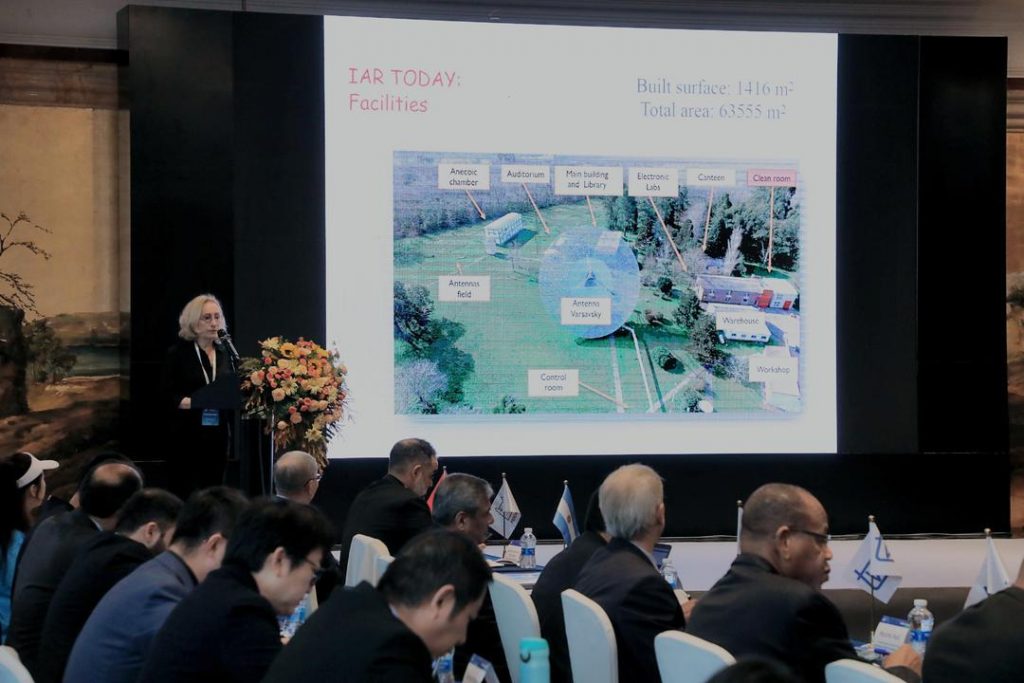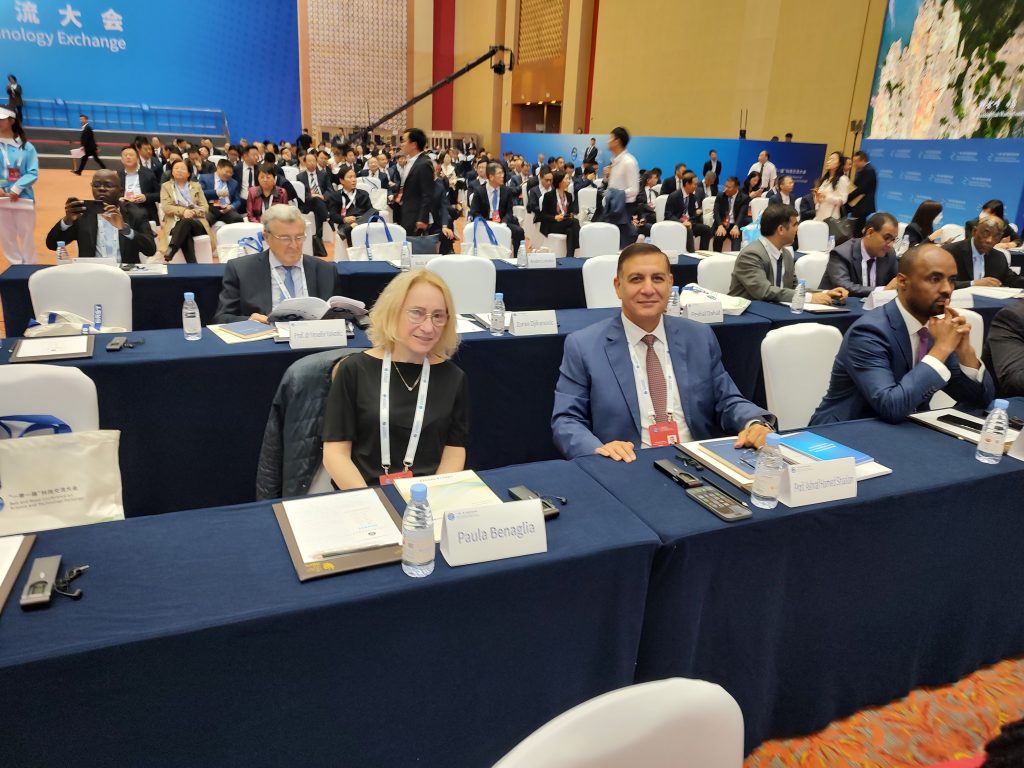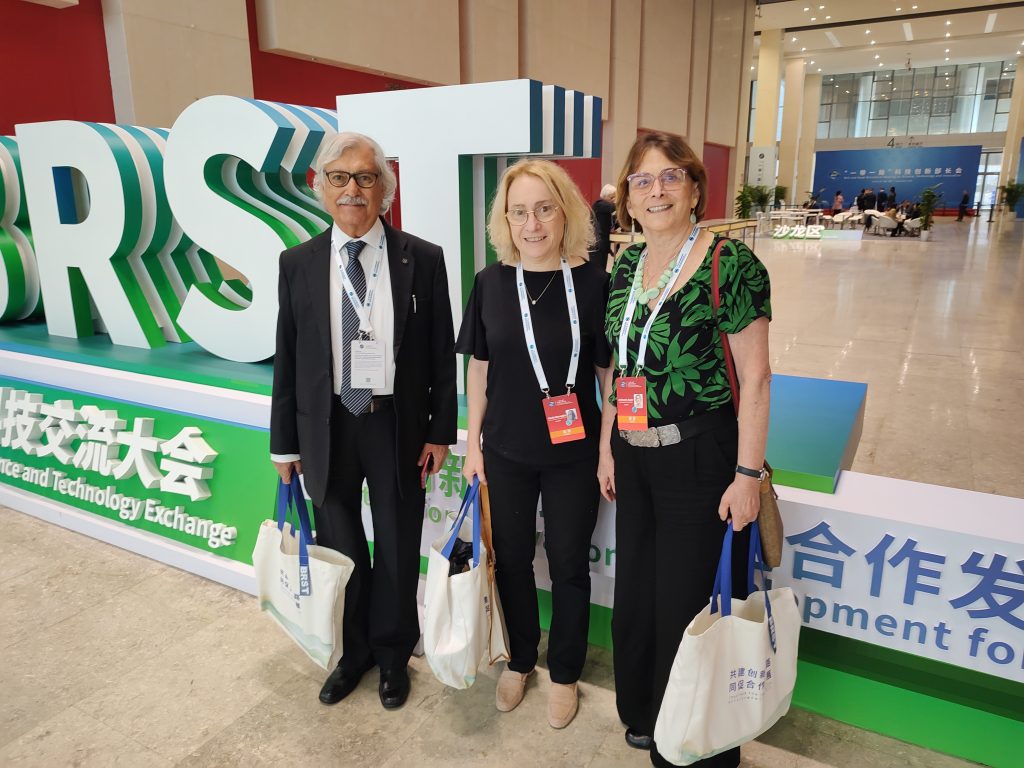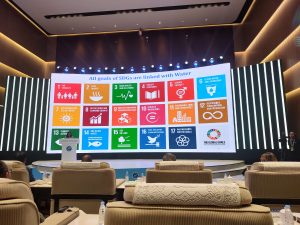Año 21 Número 83 – Diciembre 2023
by Paula Benaglia
In November, the IAR participated in two events in the city of Chongqing, Central China. From the 4th to the 5th, the 3rd General Assembly of the collective known as ANSO, Alliance for National and International Science Organizations, was held. This was followed by the First Belt and Road Conference on Scientific and Technological Exchange. Dr. Paula Benaglia represented the Institute at both international meetings. Chongqing is generally considered to be the most populous city in the world, with a population of 32 million.
About the Belt and Road Initiative
The Belt and Road Initiative (BRI) is an ambitious project to strengthen international cooperation by improving connectivity between countries along the ancient Silk Road and beyond. It was proposed by Chinese President XI Jinping in 2013. Partner countries face many common challenges, including climate change, environmental and resource issues, natural disasters, emerging and infectious diseases, and food security. To address these challenges, they seek to take joint actions to find science-based solutions to promote common development and prosperity.
About the Alliance for National and international Science Organisations
ANSO is an international non-profit, non-governmental scientific organization founded in 2018 by the Chinese Academy of Sciences and 36 other international scientific and educational institutions from around the world. ANSO was established under the principles of «joint consultation, joint effort and joint sharing» advocated by the BRI.
To date, ANSO has 78 members from 55 countries: 28 national academies, 28 universities, 14 national research institutes and agencies, 8 international organizations, and 8 international organizations (http://www.anso.org.cn/membersNetworks/members/).
The governance structure includes a President, two Vice Presidents and 6 other members who form the Governing Board. IAR membership was approved in January 2022, during the 2nd General Assembly.
ANSO is committed to promoting shared development, sustainable development, and advancing the United Nations Sustainable Development Goals (SDGs) by catalyzing and implementing concrete international cooperation initiatives in science, technology, innovation, and capacity building. It is envisaged that ANSO will focus its attention on exploring and addressing the most pressing regional and global scientific challenges. This approach includes supporting the needs and scientific capacity building of the Global South through partnerships and collaborations with member countries and institutions.
ANSO is an international organization that aims to gain worldwide recognition and support through continuous activity, strong scientific programs and actions, and success in addressing global needs and challenges.
Major activities of ANSO (http://www.anso.org.cn/about/anso/):
- Create awards that encourage participation and collaboration to address the great challenges facing humanity.
- To organize the education, training and empowerment of individuals to build the social foundation for the collaborative development of a community of all humanity with a shared future.
- To promote the improvement of welfare and economic development through the close integration of innovation, technology and commercialization. It is committed to the protection of intellectual property and the maintenance of standards.
- Organize and implement science and technology programs and initiatives focused on human livelihoods and well-being, such as clean water, sustainable agriculture, environmental protection, desertification control, poverty alleviation, and public health.
- Catalyze and initiate major international scientific programs, particularly in areas of key importance for sustainable development (climate change, natural resource management, environmental protection, natural disasters, water security, agriculture and food security, ecosystem and biodiversity conservation, biosecurity, energy security, and big data).
- To organize and provide science-based advice and consultation for regional and global sustainable development.
ANSO Programmes:
- Scholarships for young talents and fellowships for professional visits to mega-science facilities (e.g., FAST radio telescope).
- Collaborative research.
- Training programs.
- Association with international networks.
About the ANSO 3rd General Assembly
The meeting was held in a hybrid format, with the face-to-face part taking place in the meeting rooms of the Chongqing Huachen International Hotel. The main topics of discussion were the election of new authorities, reforms – mainly formal – to the Statutes, and applications for the admission of new members. Among the latter, the admission of CONICET was approved. Since the IAR was the only member from Argentina present, and since each country has one vote, the IAR representative was responsible for casting the country’s vote.
During the Assembly, each of the members present had the opportunity to present material about their institution.
About the BRI Conference
The First Belt and Road Science and Technology Exchange Conference was held in Chongqing on November 6-7, as part of the celebration of the 10th anniversary of the BRI. Chinese President Xi Jinping sent a congratulatory letter and reiterated China’s commitment to fully implement the Belt and Road Action Plan for Science, Technology and Innovation Cooperation and promote international scientific and technological innovation exchanges. Nearly 1,000 domestic and foreign guests from more than 80 countries and international organizations attended the conference, including IAR. Chinese authorities put forward five proposals to deepen S&T cooperation, including strengthening government-to-government cooperation, increasing the scale of S&T exchanges and expanding the scope of S&T cooperation (more information at https://eng.yidaiyilu.gov.cn/p/0MN6VD8S.html).
According to official data released at the BRI conference, China has signed intergovernmental scientific and technological cooperation agreements with more than 80 Belt and Road partner countries. It has also jointly built more than 50 Belt and Road laboratories in fields such as health, transportation, materials and energy, and established more than 20 agricultural technology demonstration centers and more than 70 industrial parks in Belt and Road partner countries.
As a sub-forum of the aforementioned Conference, the Chinese Academy of Sciences, in collaboration with ANSO, organized the «Belt and Road Forum for Young Scientists» (also known as ANSO Young Scientists Forum) on November 6. The event showcased the skills, knowledge and global perspectives of young scientific talents, promoting the high-quality development of BRI and building a community with a shared future for humanity. The forum was attended by more than 100 representatives from governments, scientific institutes, organizations and universities, including the IAR.
Left: Institute of Tibetan Plateau Research, Chinese Academy of Sciences (CAS), where ANSO’s offices are located, Beijing. Right: A snapshot of the city of Chongqing
Left: Participants at the closing of the Third ANSO General Assembly. Right: Presentation on the IAR: facts and figures
Belt and Road Conference on Science and Technology Exchange, the IAR together with participants from Egypt, Pakistan, and Brazil
ANSO Young Scientists Forum; presentation of the UN Sustainable Development Goals
Paula Benaglia, on behalf of the IAR Directorate, truly thanks the support of ANSO and the event organizers, especially the Program Manager of the ANSO Secretariat, Ms. Zhongxiu Wang.

